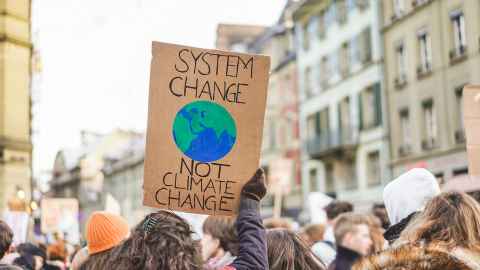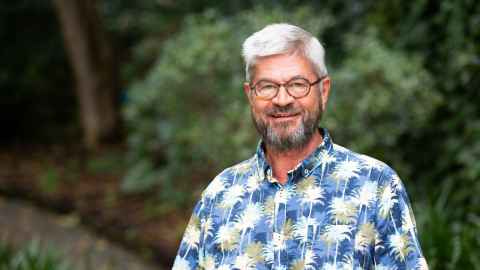International law has failed the global environment: what's next?
20 March 2023
A look back over the past 50 years shows that international environmental law has ignored its overarching objective to protect the global environment, says Professor Klaus Bosselmann.

How can global responsibilities be reconciled with national interests? Can the environmental protection of the Earth be something that countries work on together? Can the 'mutual benefits' of environmental protection really be assumed in a world of competing national economies?
A shift in the way we think about the environment from a country-centred perspective to an Earth-centred view is paramount if we are to fight climate change, says Professor Klaus Bosselmann.
Although international environmental agreements cover climate, oceans, biodiversity and many other areas of the global environment, they do so in a fragmented and uncoordinated manner, according to the environmental law expert, who is working on a number of recommendations concerning the environment as a global public good, for the United Nations Summit of the Future next year.
"The interrelations between the atmosphere, the hydrosphere (oceans, freshwater systems), the lithosphere (soils) and the biosphere have been neglected, causing ever-increasing threats to the integrity of the Earth's ecosystem," he says.
"In the same vein, global governance is fragmented and inadequate."
A look back over the past 50 years shows that international environmental law has ignored its overarching objective to protect the global environment, Bosselmann writes in a recent paper titled 'Human Rights and Responsibilities Towards the Earth System'.
What we need, he says, is a re-think of the current principles ruling international environmental law, global governance and effective multilateralism.

In Bosselmann's role as global governance adviser to the High-Level Advisory Board of Effective Multilateralism, he's working on getting 'Earth trusteeship' on the agenda of the Summit of the Future in September 2024 and to see the (now defunct) UN Trusteeship Council repurposed as an Earth Trusteeship Council.
Earth trusteeship can be defined as a form of governance that requires member states or governments that act on behalf of their citizens to be trustees for the benefit of the Earth and to abide by a fundamental duty to protect the integrity of Earth's ecological systems.
"Under international law, there's no legally binding duty of states to protect the global environment," says Bosselmann. "This makes it necessary, and indeed urgent, to investigate the merits of trusteeship responsibilities that we all have towards future generations and the Earth."
The United Nations Trusteeship Council was established in 1945 to supervise the administration of trust territories as they transitioned from colonies to sovereign nations. Its underpinning philosophy, says Bosselmann, is still valid, and a repurposed Trusteeship Council would focus on intergenerational equity and the global environment while remaining part of the United Nations.
"Legally speaking, trusteeship means you act on behalf of somebody who cannot act for themselves. By definition, this includes under-age children and future generations."
The idea of repurposing the UN Trusteeship Council to create a more coherent approach to global governance has been proposed several times over the years but has yet to take hold.
"The process towards institutional reform of this nature takes commitment and time", says Bosselmann, "however, it is vital to start the process and explore new multi-sectoral coalitions at international and national levels to take up common trusteeship challenges.
"Not taking this opportunity now could cause a situation where any efforts towards effective multilateralism and the protection of global commons will be too late."
Media contact
Sophie Boladeras | Media adviser
M: 022 4600 388
E: sophie.boladeras@auckland.ac.nz